On his way to McGaw Hall on the Northwestern campus on Friday, April 25, 2014, Northwestern football player Deonte Gibson couldn’t help but put on a little show for photographers and reporters on the scene by breaking out a few dance steps. His mood and lighthearted antics did not appear to betray the seriousness of the endeavor that he and his Northwestern teammates were about to participate in that morning. Gibson and the rest of the Wildcat football players were on their way to cast votes on whether Northwestern University football players would be represented by the College Athletes Players Association (“CAPA”), a labor organization headed by former Northwestern quarterback Kain Colter.
The vote comes on the heels of a decision rendered by Peter Sung Ohr, regional director of the Chicago Regional Office of the National Labor Relations Board (“NLRB”), that Northwestern scholarship football players are “employees” for purposes of Section 2(3) of the National Labor Relations Act (“the Act”) and that their scholarships constituted compensation. He declared that the bargaining unit which would vote on whether to form a union consisted of “all football players receiving grant-in-aid scholarship and not having exhausted their playing eligibility employed by [Northwestern University].” The NLRB in Washington has agreed to hear Northwestern’s appeal that seeks to overturn Ohr’s decision.
The results of the Northwestern football players’ vote will not be known until after the NLRB rules on this appeal. Regardless of the results, the vote itself was a historic event in the oft flawed history of the NCAA. A majority vote in favor of joining CAPA would be historic in its own right, but even more consequential for the NCAA and its member institutions would be if the NLRB agrees with CAPA on appeal that the Northwestern scholarship football players are employees.[i]
If the status of scholarship athletes as employees is confirmed on appeal, what does it do to their status as amateur athletes? For student athletes who choose to unionize, what additional benefits/compensation will they seek, and what effect with that have on their amateur statuses? And what effect will these developments have on the tax-exempt status of the NCAA and its member institutions? As you’ll see, the answer to these questions may all be up to the NCAA itself.
Tax-exempt Status of the NCAA and Schools
The NCAA and the vast majority of private and public universities are recognized as tax-exempt entities under § 501(c)(3) of the Internal Revenue Code (IRC). Section 501(c)(3) is meant to provide exemption from income tax to “charitable” organizations. The list of charitable organizations is broad, and includes educational entities and, coincidentally, those operated “to foster national or international amateur sports competition”.
Except of course, it’s no coincidence at all. Prior to 1976, there was some debate about whether the NCAA was an organization engaged in a charitable purpose as contemplated by § 501(c)(3). The educational classification was applied broadly to various organizations that disseminated information to the public, including museums, zoos, orchestra, planetariums, and at least one jazz festival. But as it pertained to athletics, the IRS was not clear about whether “promoting” athletics was a charitable or educational purpose as contemplated in § 501(c)(3). The IRS had generally limited the tax exemption to organizations that provided specific athletic education, like Little League Baseball, or that organized youth sports programs as a means of fighting juvenile delinquency.
But in 1976, Congress specifically added entities which foster “national or international amateur sports competition” to the list of tax-exempt organizations under §501(c)(3), thereby removing any doubt about whether the NCAA was a charitable organization. Additionally, in 1982, the Tenth Circuit upheld a Tax Court decision that the furtherance of recreational and amateur sports was a charitable activity even if the IRS had not made the addition to § 501(c)(3) in 1976.[ii]
Despite the aforementioned legislation and case law, the NCAA has sustained attacks on its tax-exempt status for years.[iii] For example, critics point to the fact that salaries of FBS football coaches and Division I men’s basketball coaches oftentimes far exceed the yearly pay of experienced faculty and administration officials. They argue that these salaries violate a portion of IRC § 501(c)(3) which states that no part of the earnings of the exempt organization may inure to the benefit of any private shareholder or individual. Federal courts have stated that this portion of IRC § 501(c)(3) prevents “siphoning off” of the exempt organization’s assets to an “insider”,[iv] including paying an “unreasonable” salary to an insider. However, whether a salary is reasonable is measured by what non-profit and for-profit entities within the market are paying for similar services.[v] Thus, the $5.5 million that Nick Saban earned in 2013 and the $9.7 million that Mike Krzyzewski earned in 2013 are considered reasonable in comparison not only to other college coaches, but also other coaches at the professional level.
Amateurism
Because of the language in IRC § 501(c)(3) that bases the NCAA’s tax exemption on its promotion of “amateur sports competition,” the key issue in determining whether the NCAA’s tax-exempt status will survive the NLRB’s decision is amateurism. Will scholarship athletes still be amateurs for purpose of the Internal Revenue Code? Presumably, the IRS could determine that Ohr’s decision itself negates the players’ amateur status since Ohr found that scholarship players are receiving compensation and are “employees” under Section 2(3) of the Act. If that opinion is upheld on appeal to the NLRB in Washington, is that enough to destroy the amateur status of all scholarship athletes without even considering whether they subsequently unionize and negotiate for compensation? This probably was not Ohr’s intention, but it is a possible consequence of his ruling.
For student athletes that do unionize, it will be interesting to see what types of benefits they negotiate for and receive from their respective universities. According to Colter, the main concern of football players at Northwestern is better health care and limited practice hours. If unionizing student athletes limited their requests to better health care benefits, practice hours, and other “employment” conditions, would that really be sufficient grounds for revoking the players’ amateur status? They already receive some health care and other benefits from their schools, so a few improved conditions likely wouldn’t strip them of their amateur status. Right?
But would student-athletes who form a union stop there? It’s completely reasonable to believe they would ask for compensation beyond their scholarships directly from the university. If not by the university itself, they may fight to be allowed to receive compensation for the use of their name, likeness, or image on jerseys, advertisements, video, games, etc. Former UCLA basketball player Ed O’Bannon currently has a class action antitrust lawsuit against the NCAA which seeks, among other things, to allow NCAA football players and men’s basketball players to receive compensation for use of their likeness in television broadcasts, video games, and other marketing. If student-athlete unions seek such compensation, will the players still be considered amateurs?
Now, everything I’ve stated up to this point is basically speculation, because many more things have to happen before we’ll have any clarity on what this could do to the NCAA’s tax exemption. But here is the peculiar thing about all of this: the NCAA itself could potentially have the power to determine whether it maintains its tax exemption in the wake of the NLRB decision, since current IRS procedure allows for the NCAA to determine whether an athlete remains an amateur. The IRS’s Internal Revenue Manual (IRM) states that whether a certain type of compensation destroys an athlete’s eligibility to compete as an amateur is determined by the “national governing body of the sport involved”, i.e. the NCAA in this situation.[vi]
Thus, the NCAA and its member institutions could be forced to recognize scholarship athletes as employees and their scholarships as compensation, and they could be forced to allow scholarship athletes to unionize. Any one of those events could do away with an athlete’s amateur status. But in the end, the determination of whether such athletes remain amateurs, thereby allowing the NCAA to maintain its tax-exempt status, is entirely up to the NCAA.
Conclusion
Given the unprecedented nature of the circumstances which the Ohr decision presents, it is difficult to say what effect the classification of student athletes as employees and the potential unionization of entire athletic teams could have on the tax exempt status of the NCAA and its private university members. The language in IRC § 501(c)(3) suggests that the NCAA’s tax exemption will hinge on whether the student athletes involved remain amateurs, since the whole reason the NCAA and the athletic departments of its members institutions are able to remain tax exempt is because they foster “amateur sports competition.”
Several events must transpire before we have more clarity on this issue, the first of which will be the ruling on Northwestern’s appeal by the NLRB in Washington. But if current law and procedure remain intact, the NCAA could end up deciding for the IRS whether football and basketball players for big time programs remain amateurs even after they are determined to be employees, form a union, and seek additional compensation through that union. It is therefore plausible that the NCAA could decide whether it and the athletic departments of its member institutions remain tax exempt or not. Although we all know that the NCAA is solely interested in fostering amateur competition rather than financial gain, I’ll go out on a limb and suggest that the NCAA will do anything within its power to maintain its tax exempt status.
[i] It should be noted here that the National Labor Relations Act and the NLRB only govern labor issues in private companies and organizations. Therefore, the NLRB’s ruling on Northwestern’s appeal would not directly affect public universities and colleges. Whether student-athletes at public universities are employees of the university and can form a union would be up to the individual states that govern them.
[ii] Hutchinson Baseball Enterprises v. Commissioner, 696 F.2d 757 (10th 1982).
[iii] For a more comprehensive examination of the NCAA’s tax exempt status and challenges to it, see John D. Colombo, The NCAA, Tax Exemption, and College Athletics, 1 Ill. L. Rev. 109 (2010).
[iv] See United Cancer Council, Inc. v. Comm’r, 165 F.3d 1173, 1176 (7th Cir. 1999) (“A charity is not to siphon its earning to its founder, or the members of its board, or their families, or anyone else fairly described as an insider, that is, as the equivalent of an owner or manager.”).
[v] See 26 CFR § 53.4958-4(b)(1)(ii)(A) (“The value of services is the amount that would ordinarily be paid for like services by like enterprises (whether taxable or tax-exempt) . . . .”).
[vi] See Internal Revenue Manual, 7.25.26.7http://www.irs.gov/irm/part7/irm_07-025-026.html#d0e149.
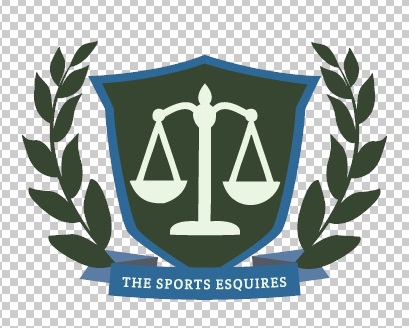
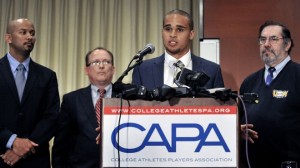
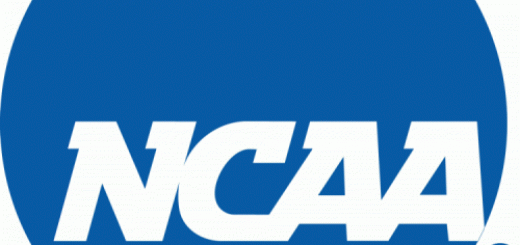
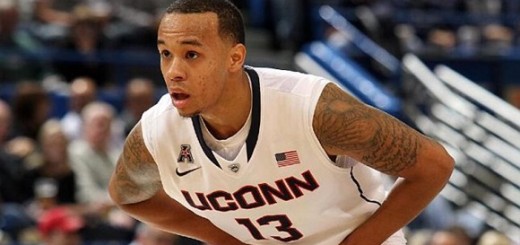
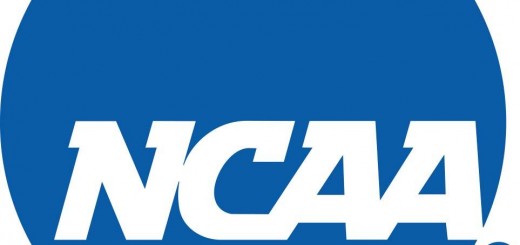
Recent Comments